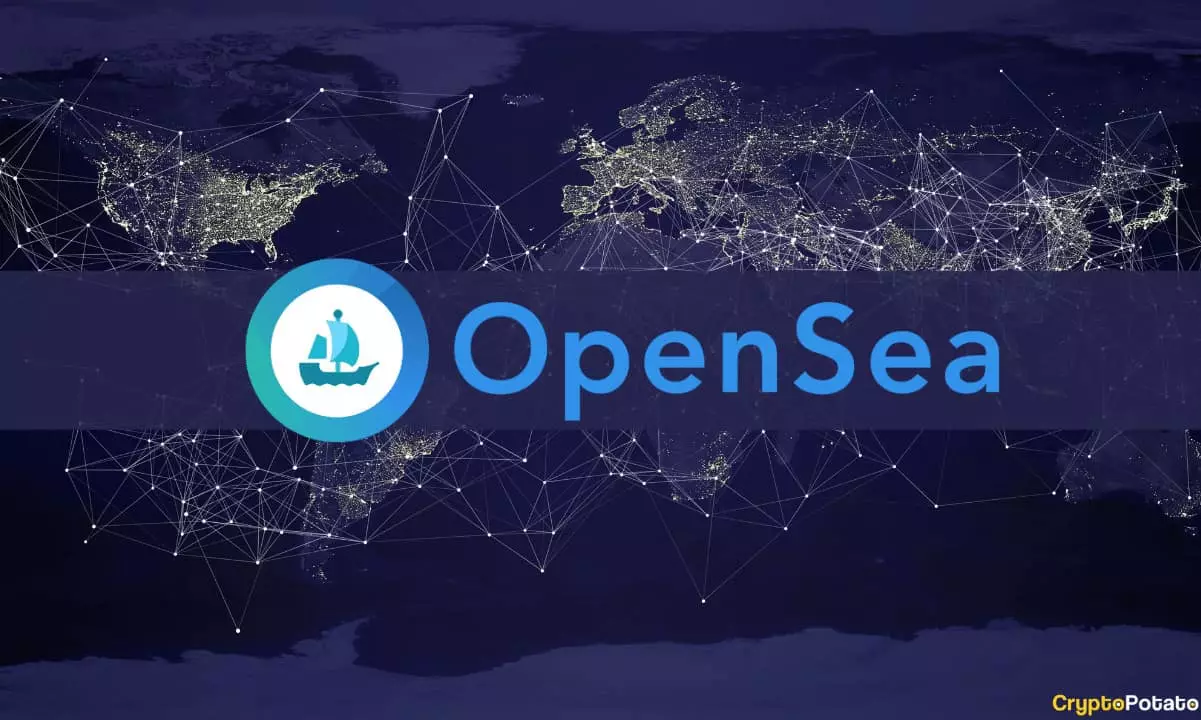OpenSea, once a flagship platform in the explosive world of non-fungible tokens (NFTs), is experiencing a significant crisis marked by decreasing engagement and increasing competition. As the hype surrounding NFTs soared in 2021, OpenSea capitalized on this momentum. However, the sector has witnessed a substantial decline over the past two years, which has dramatically affected the marketplace’s revenue and stability. The emergence of new platforms like Blur and Magic Eden has exacerbated OpenSea’s struggles; both competitors provide innovative features and lower transaction fees, attracting users away from the once-dominant marketplace. In a rapidly changing digital landscape, OpenSea faces the daunting task of regaining its former glory amidst an influx of alternatives promising better financial incentives.
A worrying trend for OpenSea has been the notable exodus of high-level executives. In recent months, key figures including the former Chief Operating Officer, Shiva Rajaraman, and the head of business and corporate development, Jeremy Fine, have left the company, indicating deeper issues within its leadership and culture. In total, four executives have resigned in the space of three months, a clear signal that morale may be low and confidence in the company’s future is waning. The departures have raised questions surrounding OpenSea’s organizational structure and strategic direction. For instance, Rajaraman has since joined Uber, while Fine has moved to OpenAI, reflecting a drift toward companies perceived as more innovative and stable. Such transitions not only impact internal operations but also signal to potential employees and investors that OpenSea may be struggling to attract and retain talent.
On top of its operational challenges, OpenSea is navigating a treacherous legal landscape. The attention of the U.S. Securities and Exchange Commission (SEC) is particularly noteworthy, as the agency investigates whether the NFTs listed on OpenSea are classified as unregistered securities. The implications of such a designation could be catastrophic, potentially leading to costly regulatory compliance measures or even penalties. This scrutiny adds another layer of uncertainty for the firm, which is already grappling with market share erosion and declining user engagement. The outcome of these investigations will be pivotal, affecting not just OpenSea but the broader NFT marketplace landscape as regulators increasingly seek to impose order on this rapidly evolving technology.
For OpenSea to reclaim its status as a leader in the NFT marketplace, it must adopt a multifaceted strategy that addresses both internal and external pressures. This includes fostering a corporate culture that encourages innovation and minimizes staff turnover, while also enhancing user experience through competitive features and pricing. Strengthening legal compliance and enhancing transparency will be vital in rebuilding trust with users and regulators alike. In a space marked by volatility and rapid evolution, OpenSea’s capacity to adapt to these challenges will ultimately determine whether it can restore its prominence—or whether it will fade into obscurity amid a growing pool of capable competitors.

